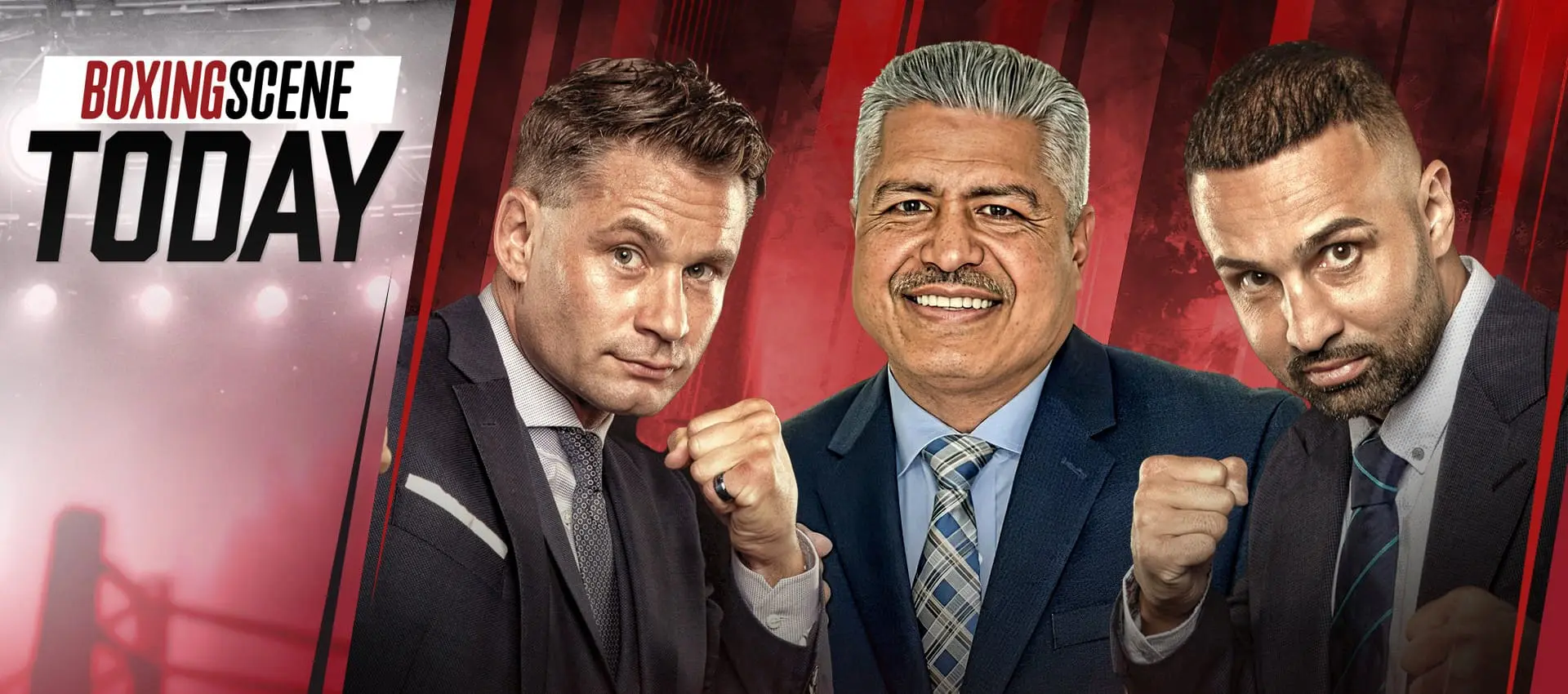
Saturday | Nov 29, 2025 | 7:00 PM EST
Justin Pauldo vs Nike Theran
Muhammadkhuja Yaqubov vs Cristian Cruz Chacon
Erik Badillo vs Elwin Soto
ProBox TVFresno, California

Saturday | Dec 6, 2025 | 8:00 PM EST
Isaac Cruz vs Lamont Roach Jr.
Erislandy Lara vs Janibek Alimkhanuly
O'Shaquie Foster vs Stephen Fulton
Jesus Ramos Jr. vs Shane Mosley Jr.
Frank Martin vs Rances Barthelemy
Isaac Lucero vs Roberto Valenzuela Jr.
Luis Reynaldo Nunez vs Hector Andres Sosa
Amazon PrimeSan Antonio, Texas

Saturday | Dec 27, 2025 | 12:00 AM EST
Naoya Inoue vs Alan David Picasso
Junto Nakatani vs Sebastian Hernandez Reyes
Willibaldo Garcia vs Kenshiro Teraji
DAZNRiyadh, Saudi Arabia
'BoxingScene Today'Talk Show
Pauli, Algieri, and Coach Garcia breakdown today's top stories

Upcoming episode - coming soon
Boxing Interviews
Interviews with boxing biggest stars

Trainer Robert Garcia on Vergil Ortiz Jnr's TKO win against Erickson Lubin
Nov 9, 2025 |

Vergil Ortiz Jnr discusses the early ending in his stoppage win over Erickson Lubin
Nov 9, 2025 |

Vergil Ortiz Jnr on stopping Erickson Lubin, facing off with Jaron Ennis
Nov 9, 2025 |

Oscar De La Hoya talks Vergil Ortiz Jnr-Jaron Ennis and money matters
Nov 9, 2025 |






